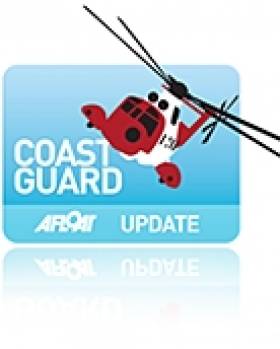Displaying items by tag: lifering
Two Fishermen Rescued After an Hour in the Water
Liverpool Coastguard received a 999 call from a member of the public at just after 1.30pm. The caller had heard calls for help from the water and spotted two people in difficulty off Silloth, Cumbria. Coastguard Rescue Teams from Maryport and Burgh by Sand were sent to the scene with the RNLI Inshore Lifeboat from Silloth and Maryport Inshore Rescue Boat.
The fishermen were rescued from the water by the RNLI Inshore Lifeboat and taken to hospital in Carlisle by ambulance. It then transpired that they had been fishing for shrimps at Cardurnock Flats, four miles from where they were found. It appears that their net got caught and their ten-metre fishing vessel 'Boy Bailey' turned over in the water. The vessel then sank and the men spent an hour drifting in the water, supported by life rings.
Tony Topping Liverpool Coastguard Watch Manager said:
"These fishermen were extremely lucky. Firstly they managed to grab life rings and then the tide carried them the four miles down to Silloth.
"The MCA recommends that commercial fishermen wear a personal floatation device or lifeline whilst working on the deck of a vessel at sea. This will keep you afloat should the unexpected happen and if you also have your vessel fitted with VHF DSC radio equipment which can send a distress alert you'll also have a way of calling for assistance when you need it."






























































